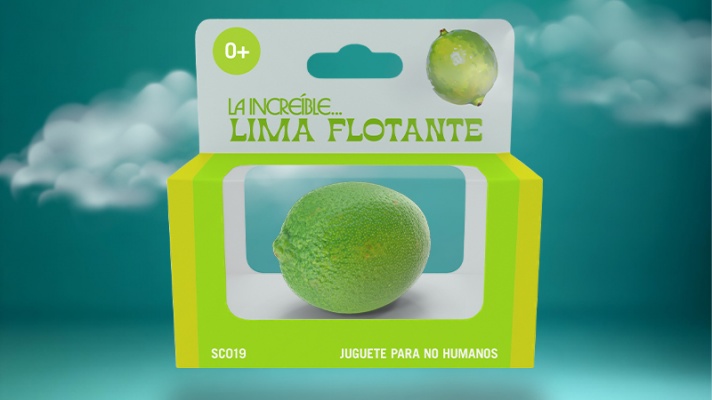Descripción de la Exposición
A soft track envelops the space with the distant lullaby of Hawaiian slide guitar; a stream of warm yellow light seeps through a series of translucent panels; ordinary objects from water bottles to cement bags, fossilised in concrete, rest carefully on an extended bed of sand. Edouard Malingue Gallery is pleased to present Green Island, an immersive solo exhibition by João Vasco Paiva (b. 1979) that takes land cityscapes as a starting point to deconstruct various states of ambivalence: framed ideals of the urbanised versus the natural, the push and pull between construction and eventual dereliction.
At the heart of the exhibition is its title, Green Island, which refers to a cement brand produced in Hong Kong, yet established as a company in the early 20th century on an island brandishing the same name in Macao (Ilha Verde). Paiva uses this title as a point of departure, reflecting visually on the irony of the words in the context of the city's framework, whilst using the material itself to mount a discourse on the urban dialectic. Channelling this are the centrally-placed sets of sculptures: casted water bottles and cement bags. Beyond their literal, medium-based association with the exhibition name, they nod to a city's growth near water sources, its construction and social productivity. Equally, through their careful arrangement, they engage the force of gravity, the delicate balance between placement and fall, acknowledging the cycle of creation and collapse.
Between the sculptures, a bed of sand creates a non-flat surface for the viewing of the works, engaging visitors to physically engage with the exhibition context. Building on the actuality or fiction of the setting,Studies for a Possible Green Island (2016), presents a series of collages on millimetric paper, which combine photographs of different geographic locations, principally Lamma Island, where Paiva lives and travels from daily—with line drawings of items ranging from rocks to debris, all found either on Ilha Verde, Lamma Island or Lichtenberg in Berlin. Centring further on urban environments, The Highways Department Colour Book (2016) comprises a collection of the technical drawings required to build and design all the components of Hong Kong's public spaces. Presented together as a colouring book, some pages of which have been filled out by Paiva but others purposely not, the work lends a playful twist to the defiance of protocol whilst providing an escape, from stress, from contexts, akin to the youthful act of classroom doodling.
Building on the dichotomy between creation and breakdown is the work Pallet (2016), based on the corner of a broken cargo tray. Widely used in markets, the piece is associated with social exchange, marked by consumption; in its incomplete state, broken due to excess items, the work indicates exaggeration or abundance. Additionally, through its process of creation and the materials used—3D scanning and subsequent reproduction in aluminium—Pallet references actual building and constructs. In the context of Hong Kong, the surrounding physical works in the exhibition and the distant hum pervading the space (Mike Cooper's "Ho'omanau nui") (1), Pallet adds a further angle to the fabric of the exhibition, aligning it, evermore clearly, with a consideration of present day ruins, both visual and out of sight.
Ultimately, Green Island, as described by Paiva, "presents itself as a ruin of the present day, a post-human landscape, where its features are objects that carry in themselves the traces of mankind—mankind as a component/factor of time." (2) Highlighting that "the present is already a ruin if we remove the people" (3) from urban settings to natural landscapes, Paiva exposes a cyclical conundrum in that the states of ambivalence, the push and pull between materials and places, which lead to construction and ruin, are created by man—yet—without him, the ruin is already in and of itself.
A monograph on João Vasco Paiva's work will be available in November 2016 featuring critical texts by Emma Enderby (Associate Curator, Public Art Fund, New York), Adelaide Ginga (Curator, Museu do Chiado - MNAC, Lisbon) and Robin Peckham (Independent Curator and Writer)
João Vasco Paiva is considered one of Hong Kong's leading emerging contemporary artists and has been exhibited widely in museums as well as galleries from Hong Kong and Portugal to the United Kingdom, Australia, Hungary and New York. Recently, Paiva presented a solo exhibition at Museu Nacional de Arte Contemporânea do Chiado, Lisbon and a citywide public project with Media Art Asia Pacific (MAAP), which coincided with the opening of the 8th Asia Pacific Triennial (APT8) in Brisbane, Australia. In 2015, he was selected for the Encounters section of Art Basel Hong Kong by Alexie Glass-Kantor. Prior to that, he completed a residency at Lichtenberg Studios, Berlin and was part of a group exhibition at the Witte de With, Rotterdam as well as a travelling exhibition at Artsonje, Seoul and OCT Contemporary Art Terminal, Shanghai. Furthermore, he held a major solo exhibition at the Orient Foundation in Macau as well as Counter Space, Zurich. Finally, Paiva is the recipient of multiple awards, including the Hong Kong Emerging Artist Grant and the International Artist Support Grant awarded by the Calouste Gulbenkian Foundation in Portugal. His work is held in the permanent collection of the Israel Museum, Jerusalem.
(1) Mike Cooper, "Ho'omanau nui", part of the Rayon Ula album recognised by Prix Ars Electronica in 2005.
(2) Interview, 2016.
(3) Interview, 2016.

Exposición. 16 abr de 2025 - 11 may de 2025 / Centro Botín / Santander, Cantabria, España

Formación. 08 may de 2025 - 17 may de 2025 / Museo Nacional Centro de Arte Reina Sofía (MNCARS) / Madrid, España